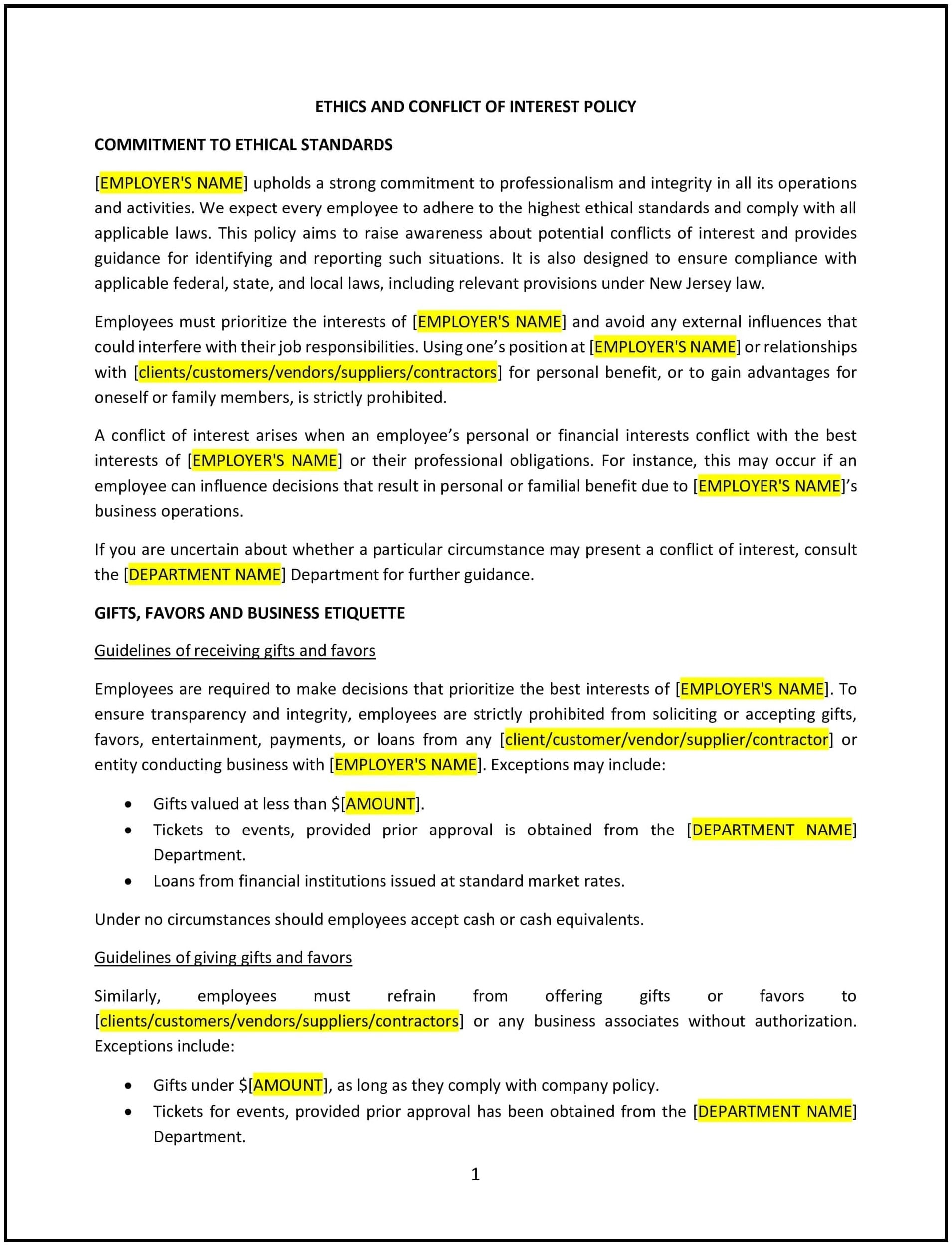Ethics and conflict of interest policy (New Jersey): Free template
Got contracts to review? While you're here for policies, let Cobrief make contract review effortless—start your free review now.

Customize this template for free
Ethics and conflict of interest policy (New Jersey)
An ethics and conflict of interest policy helps New Jersey businesses establish clear standards for ethical behavior and decision-making. This policy outlines expectations for integrity, transparency, and fairness in business operations. It also provides guidelines for identifying and managing conflicts of interest, ensuring employees act in the best interest of the company.
By adopting this policy, businesses in New Jersey can strengthen ethical decision-making, reduce risks, and promote a culture of accountability.
How to use this ethics and conflict of interest policy (New Jersey)
- Define ethical business conduct: Establish expectations for honesty, fairness, and professionalism in all business interactions.
- Identify conflicts of interest: Provide examples of situations where personal, financial, or family relationships may interfere with business decisions.
- Require disclosure of conflicts: Instruct employees to report potential conflicts of interest to management or HR for review.
- Set guidelines for accepting gifts and favors: Clarify what types of gifts, entertainment, or perks employees may accept and when they should be declined.
- Outline responsibilities for ethical decision-making: Encourage employees to report ethical concerns and seek guidance when facing ethical dilemmas.
- Prohibit misuse of company resources: Restrict employees from using company funds, confidential information, or assets for personal gain.
- Establish reporting and resolution procedures: Provide employees with a confidential method for reporting unethical behavior or conflicts of interest.
- Review and update: Regularly assess the policy to align with evolving business practices, industry standards, and New Jersey regulations.
Benefits of using this ethics and conflict of interest policy (New Jersey)
This policy provides several benefits for New Jersey businesses:
- Promotes ethical workplace culture: Encourages employees to make fair and responsible business decisions.
- Reduces legal and financial risks: Helps businesses prevent fraud, corruption, and unethical behavior.
- Strengthens transparency: Establishes clear guidelines for managing conflicts of interest.
- Enhances business reputation: Demonstrates a commitment to integrity and ethical business practices.
- Encourages accountability: Provides employees with a framework for reporting unethical behavior.
Tips for using this ethics and conflict of interest policy (New Jersey)
- Communicate the policy clearly: Ensure employees understand ethical expectations and reporting procedures.
- Train leadership on ethical decision-making: Provide managers with tools to identify and address conflicts of interest.
- Encourage a culture of integrity: Reinforce ethical behavior through workplace discussions and company policies.
- Establish safeguards for reporting concerns: Protect employees who report ethical violations from retaliation.
- Review the policy regularly: Update the policy to reflect changes in business practices and New Jersey ethics guidelines.